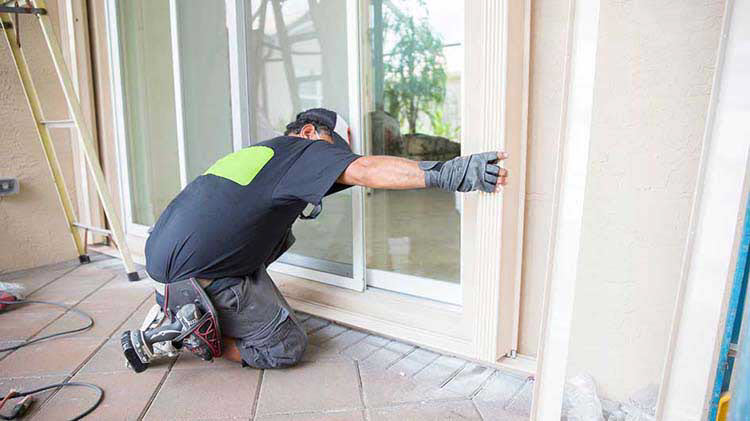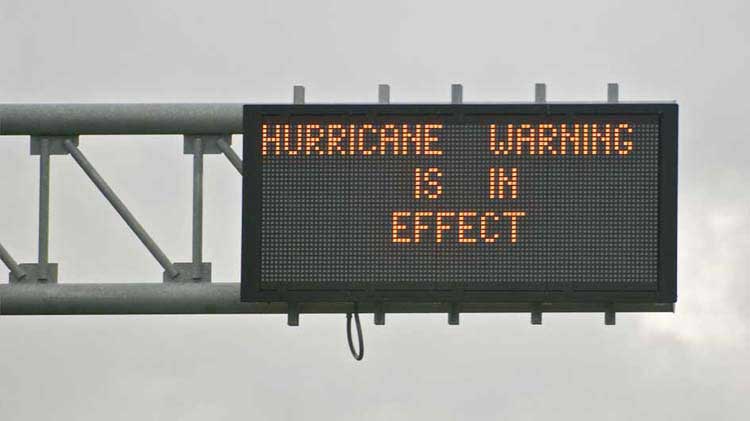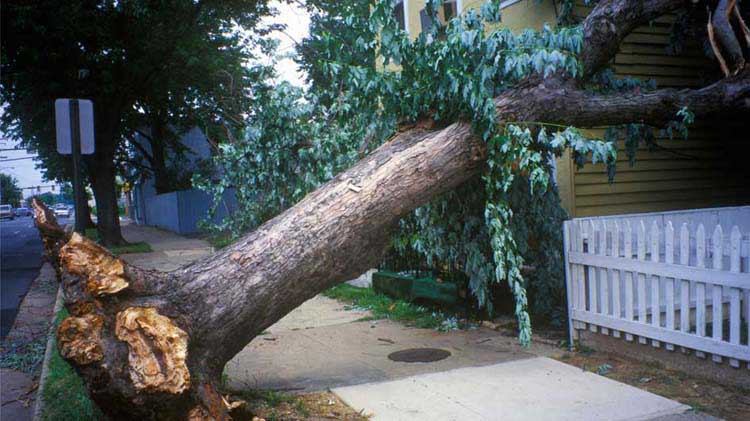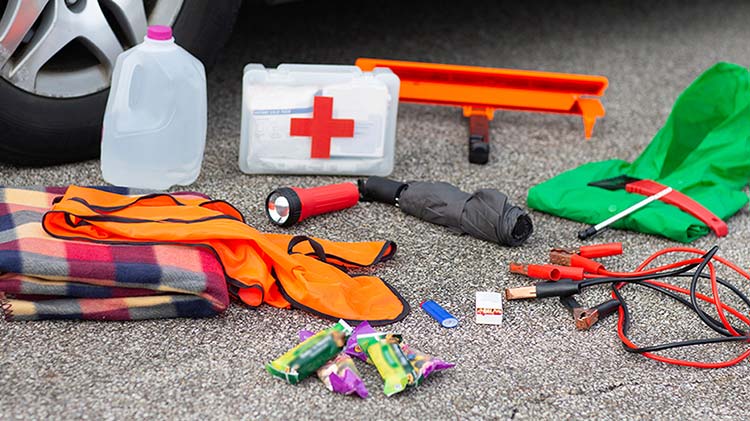Ways to stay safe during a severe storm or wind event
Preparing for a severe storm or wind emergency may help minimize damage to your property.
Severe weather safety tips
During severe weather events like hurricanes and tornadoes, winds can reach speeds greater than 100 miles per hour. High winds of any speed, however, can damage homes and property, and cause flying debris and broken glass which could cause potential injury. Proper planning may help save your family from injury and inconvenience when severe weather strikes. Prepare your family by creating a disaster preparedness plan, including a disaster survival kit and an emergency evacuation plan.
Stay informed
- Listen and watch for weather updates and advisories. Getting up-to-the-minute information is an important part of staying safe in any weather emergency. Tune in to a NOAA Weather Radio, battery-powered radio or cell phone for updates and mobile alerts.
- Wind advisory. A high wind advisory means that sustained winds of over 25 miles per hour are predicted.
- Take warnings seriously. Thunderstorm, tornado and hurricane warnings should be taken very seriously, as they mean that severe weather has been spotted and is on its way.
Find shelter during severe weather
- Take shelter in a safe location. Move to the middle of your home or basement, away from windows and glass doors. Try to take cover under a staircase or a heavy piece of furniture.
- Evacuate manufactured homes. Do not stay in a manufactured home during severe winds. They are easily overturned by high winds, and flying debris can puncture their light frames and exteriors.
- Consider building a safe room. If you live in an area prone to severe winds, you may want to build a safe room in your home. A safe room is an area of your home that has been reinforced to provide protection from broken glass and flying debris. An experienced contractor can build a safe room with a reinforced roof, walls and ceilings in a new or existing home.
- Bring a disaster kit. Wherever you seek shelter, remember to bring your family disaster kit with you.
Tips to help protect your property from severe weather and wind events
- Vehicles. Garage or store vehicles you plan to leave behind. If you don't have a garage, move them to higher ground, in case of flooding.
- Boats. Develop a plan and a checklist to help protect your boat in case of storms or hurricanes.
- Determine the safest place for your boat to ride out a storm ahead of time so it's easier to take action.
- Remove all externally mounted electronics that might be damaged by a storm.
- If your boat must remain in the water, avoid low dock pilings and narrow boat slips; both increase the potential for damage.
- Check with your marina about any guidelines or contractual requirements to safeguard your boat in the event of heavy weather.
- Surroundings. Place garbage cans, patio furniture, grills and other potentially wind-borne objects inside your home or garage
- Board your residence up. Board up windows and glass doors with shutters or plywood to minimize damage from broken glass, in case of high winds.
- Secure and shut off your outdoor pool. Turn off the circuit breaker to your outdoor pool and remove the motor to prevent damage.
- Remove risky tree branches. Prune branches that might break off during the storm and either hurt someone or cause damage to your home or vehicles.
- Rent or purchase a generator. If you can rent or purchase a generator, it might help keep refrigerators, freezers and lights on. A powerful storm can knock out power to your home for days, even weeks.
- Manufactured homes. Even when equipped with new straps and tie-downs, manufactured homes may expose occupants to a greater risk of injury than structures with permanent foundations.
- Weather advisories. Monitor the radio for weather updates. If you are instructed to evacuate, go to a shelter as directed by local authorities and:
- Lock doors and windows before you go.
- Bring your survival kit and other supplies. For a helpful list of what your kit should include, visit American Red Cross.
- Let friends and relatives know where you plan to be.
If there is no time to get to a shelter, retreat to your safe room if you have one. Otherwise, stay in the middle of your home or basement, away from windows, and try to take cover under a staircase or a heavy piece of furniture.
Tips for surviving severe storms
Anyone who's ever survived a severe storm or hurricane knows that the damage to home and property can be overwhelming — emotionally and financially. The property damage attributed to Hurricane Katrina in 2005 hit $190 billion, and property damage attributed to Hurricane Sandy in 2012 hit almost $84 billion. The annual hurricane season traditionally runs from June 1 to November 30, but a severe storm can appear suddenly at any time of the year.
What you can do now to help prepare for storms
- Organize important papers. Gather your important papers and store them off-site, in a bank safe-deposit box or some other secure location. Your mortgage, home and auto insurance policies, birth certificates, passports and other important papers should be in a safe, dry location that you can access even if your home is damaged. Store other papers and keepsakes in plastic, sealable bags on a high shelf to help avoid flood damage.
- Create a home inventory. Having an inventory or list of your possessions will expedite insurance claims after the storm. Keep it with your important papers off-site. It's much easier to file a claim with an existing inventory rather than trying to create one during the stressful post-storm period.
- Put together an emergency kit. The type of emergency kit needed will depend on where you live and the type of emergencies you may encounter. These items can come in handy if you have to leave your home and temporarily move into a public shelter.
- Create an easily accessible emergency fund. If you can do this, it will help make your post-storm recovery smoother.
Other resources
- Institute for Business and Home Safety
- Federal Alliance for Safe Homes
- American Red Cross
- Federal Emergency Management Agency
If you're a State Farm® policyholder and have experienced a catastrophe, contact your State Farm agent first. If you can't reach your agent's office, you can start and track a claim online or call our customer representatives 24/7 at 800-SF-CLAIM800-732-5246.




